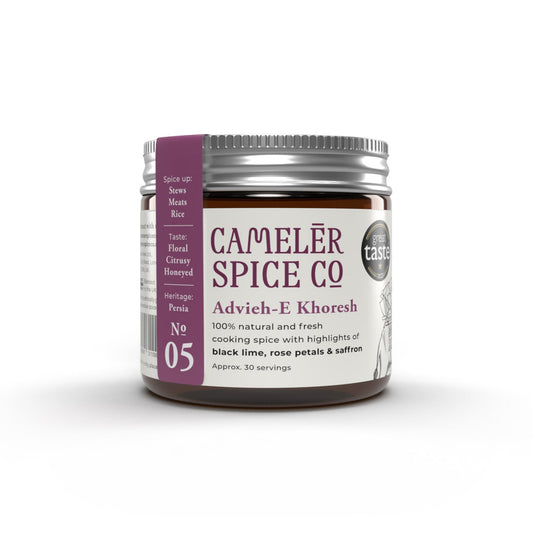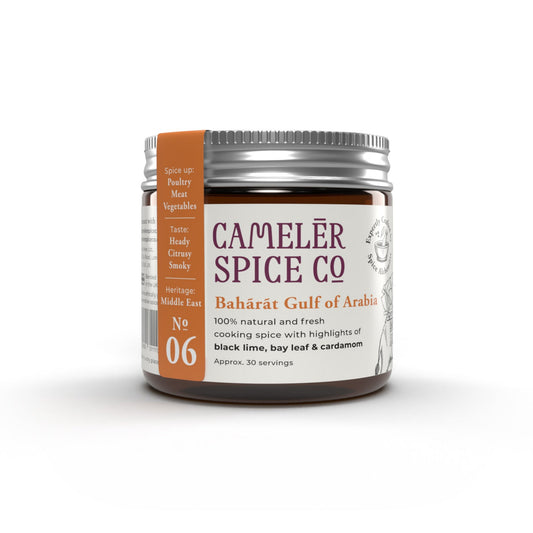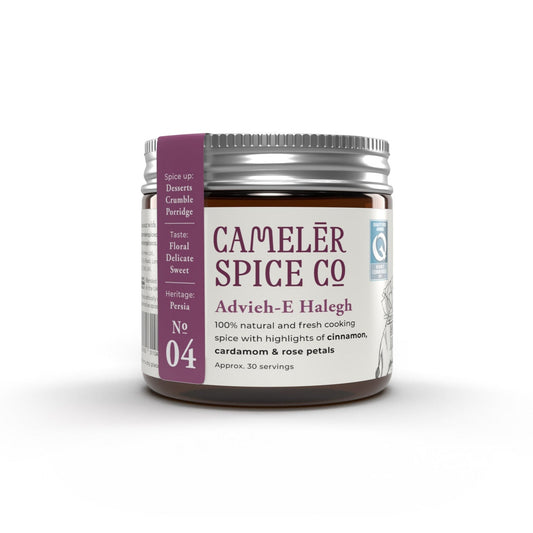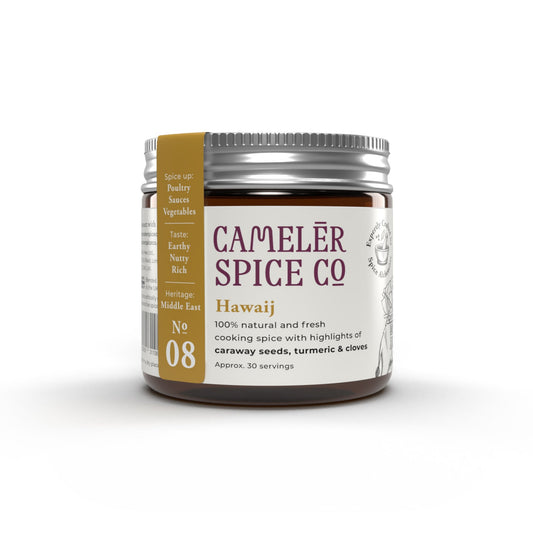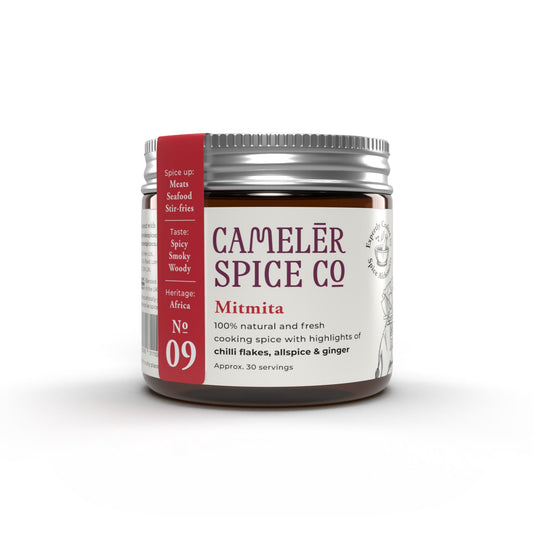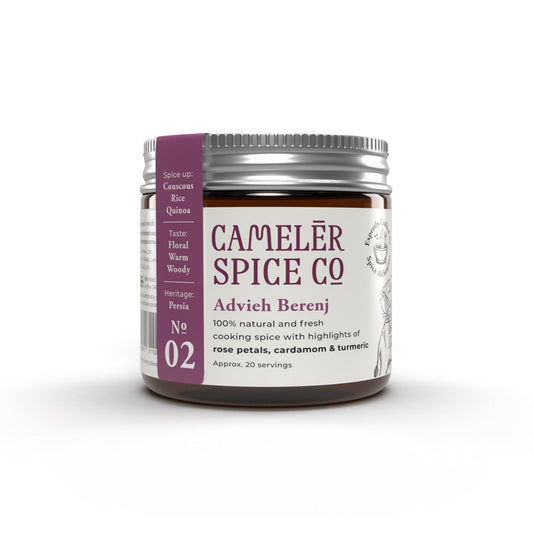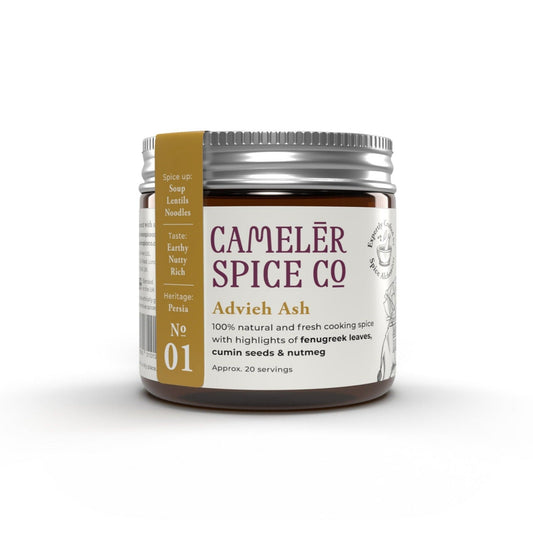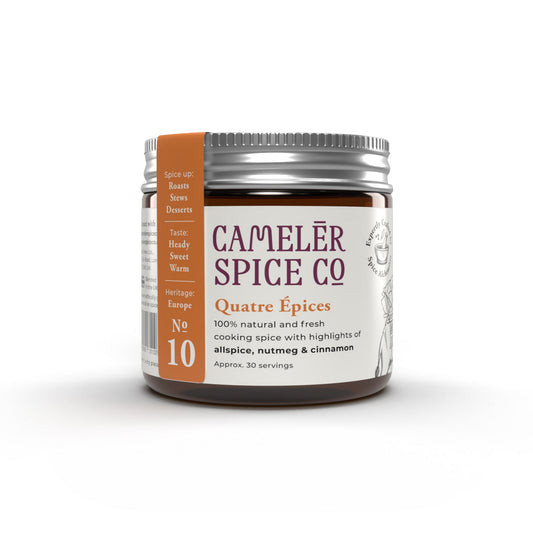
Collection: Cloves
(Also known as Nail Spice, due to its common translation in most languages and its shape)
What do cloves taste like?
Cloves are sweet, astringent, slightly acidic or bitter, and camphorous, with a sharp, cooling, pungent aroma. The name "clove" originates from the French word for nails, "Clou."
Whole cloves are the unopened, dried flower buds of a small, tropical evergreen tree indigenous to Indonesia. In Western households, cloves are often associated with Christmas traditions, such as oranges studded with cloves. Cloves are also used in baked, glazed hams, pumpkin pies, and other sweet treats. Indonesia, the largest producer of cloves, grows most of its harvest for the clove cigarette (kretek) industry.
What flavours go with cloves?
- Apple
- Basil
- Cinnamon
- Coffee
- Ginger
- Onion
- Orange
- Peach
- Tomato
- Vanilla
Our 17th-century French blend Quatre Épices epitomizes all-purpose seasoning, lending itself to both sweet and savory dishes. Cloves pair superbly with fruits like apples and oranges, making them a popular ingredient in beverages like hot toddies or mulled wine, where they stud slices of fruit. Cloves also complement coffee; try our Spiced Cognac recipe for an indulgent twist.
What are the health benefits of cloves?
Cloves are an excellent source of manganese and vitamin K. Research suggests they may boost the immune system, protect against oral and liver disease, and help with indigestion and inflammation. Clove oil is commonly used in toothpaste and mouthwash for its antiseptic properties.
What are interesting facts about cloves?
- The Moluccas, or "Spice Islands" (modern-day Maluku), were home to cloves, nutmeg, and mace for nearly 2,000 years before their discovery. In the 18th century, Pierre Poivre smuggled clove seedlings to Mauritius, spreading cultivation to Zanzibar.
- During the Han Dynasty (206 BC - 220 AD), Chinese courtiers used cloves to sweeten their breath before meeting the Emperor.
- The Romans valued cloves as perfume and incense. Like many luxury spices, cloves were central to trade disputes and unrest throughout history.
- In the Middle Ages, cloves became a popular culinary spice in the West. Venice initially held a monopoly on cloves, but Portuguese, Dutch, Spanish, and British conflicts eventually led to Dutch dominance of the trade.
- During the 17th and 18th centuries, cloves were as valuable as gold due to their high import costs.
What is the chief flavour compound of cloves?
Eugenol: This medicinal, woody, and warming compound is a colorless to dull yellow fragrant oil also found in nutmeg, cinnamon, basil, and bay leaf. Cloves have the highest eugenol concentration among spices, making them a natural complement to other warming spices such as allspice, licorice, nutmeg, cinnamon, and fenugreek.
Cloves nutritional facts
For a detailed breakdown of the nutritional values of this product, including calorie content, macronutrients, and other key details, please refer to the attached nutritional information sheet. This information is also available on our jars, with allergens highlighted in bold
Shop Spices With Cloves
-
Advieh-E Khoresh
Regular price £8.95 GBPRegular priceUnit price / per -
Baharat Gulf Of Arabia
Regular price £8.95 GBPRegular priceUnit price / per -
Advieh-E Halegh
Regular price £8.95 GBPRegular priceUnit price / per -
Advieh Berenj
Regular price £8.95 GBPRegular priceUnit price / per -
Advieh Ash
Regular price £8.95 GBPRegular priceUnit price / per -
Quatre Epices
Regular price £8.95 GBPRegular priceUnit price / per


